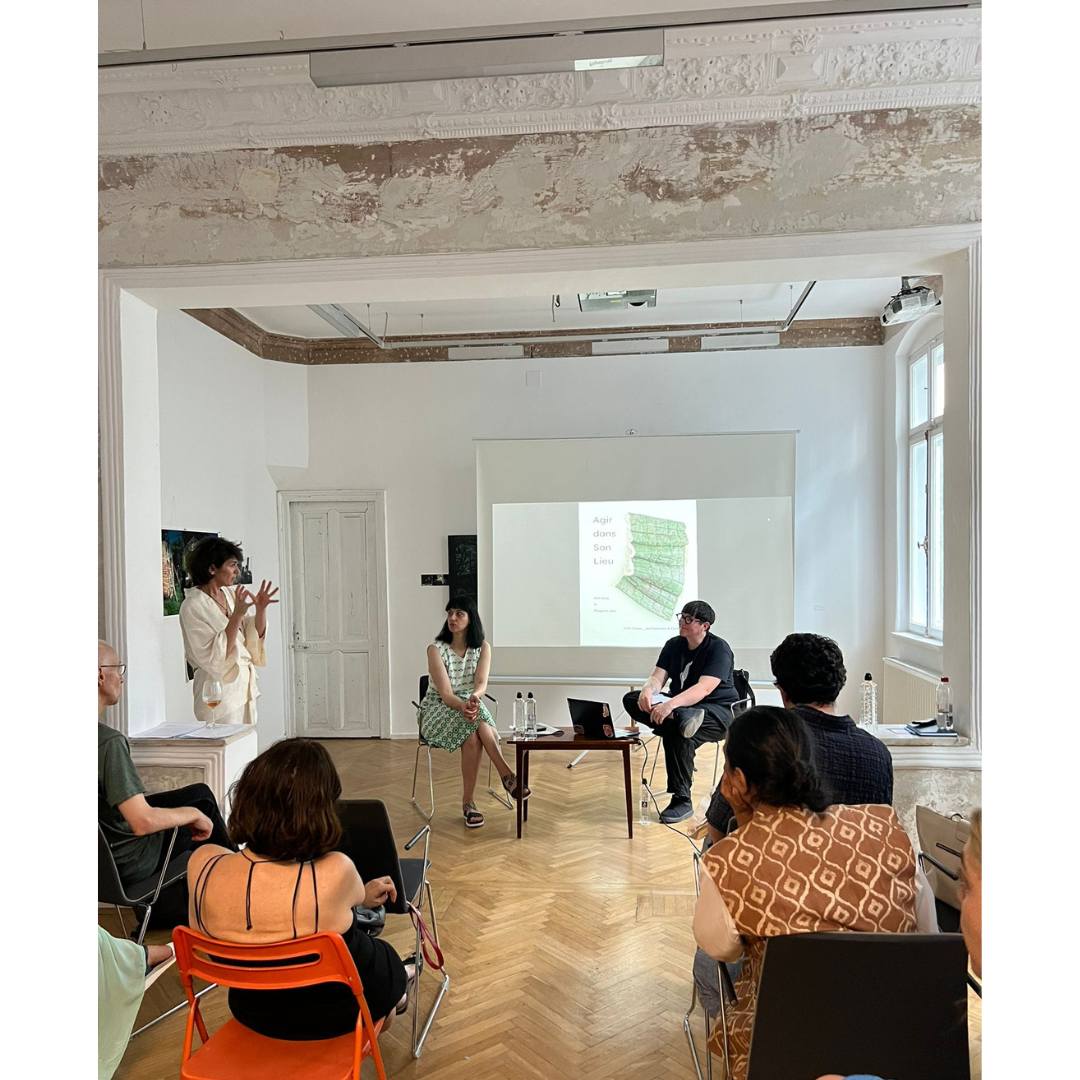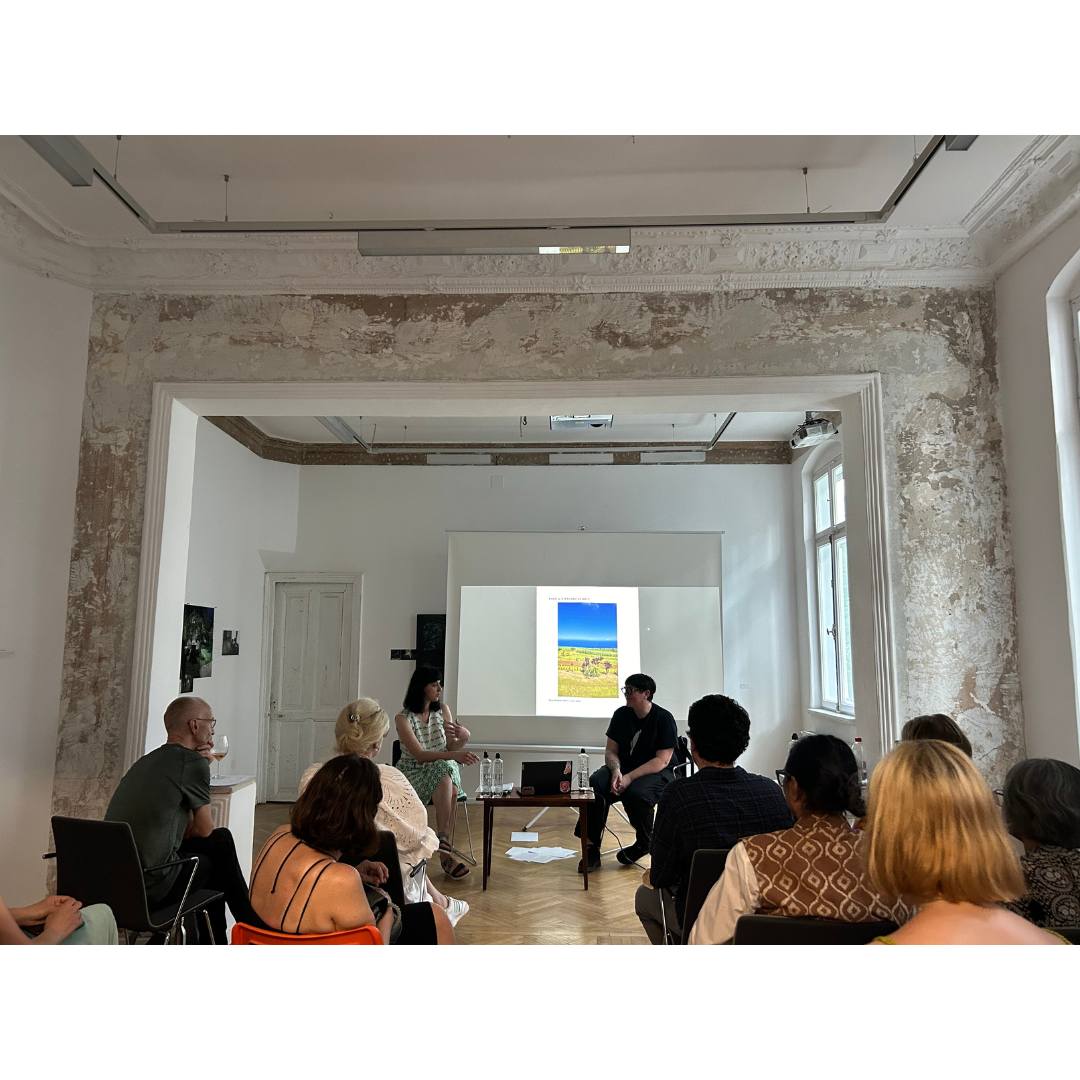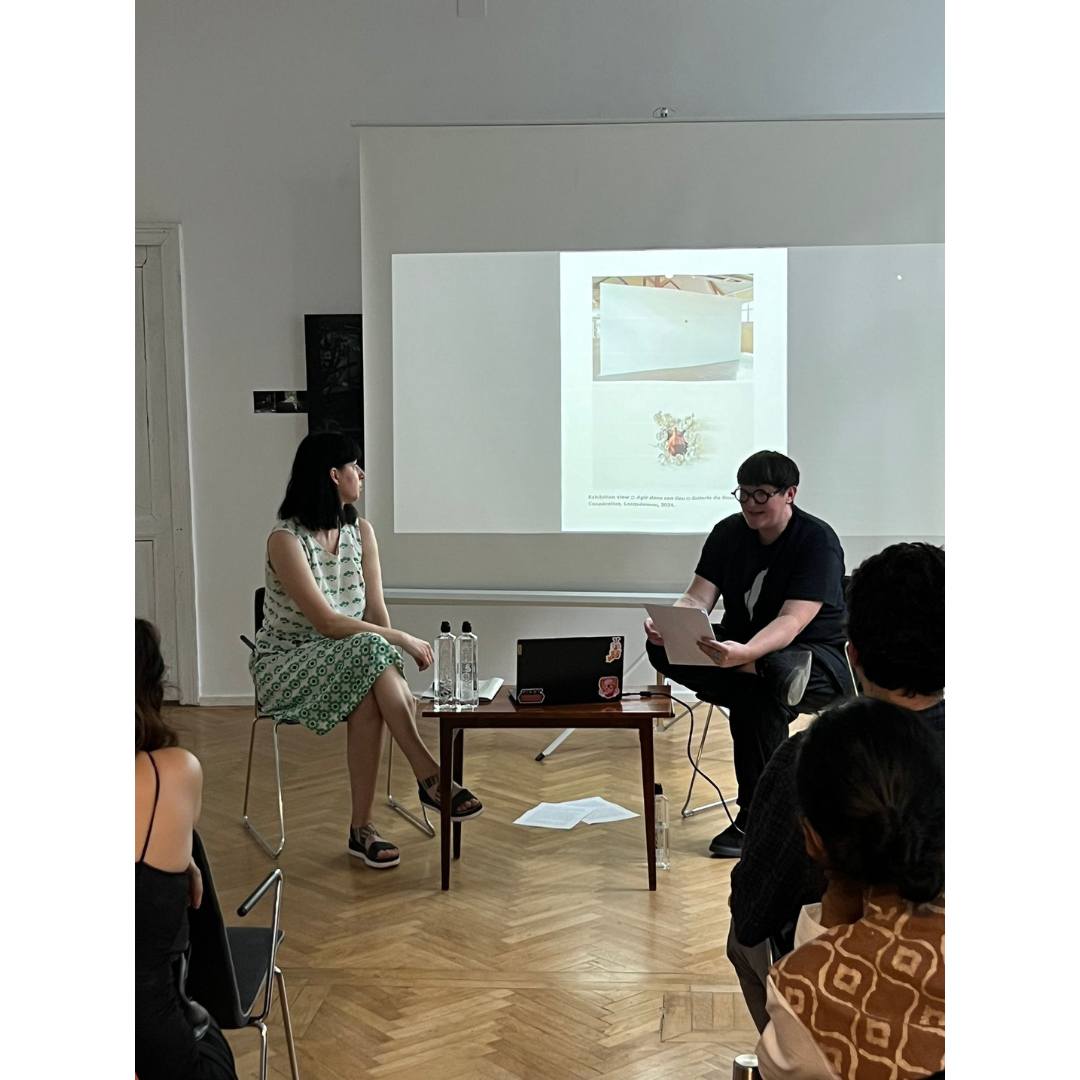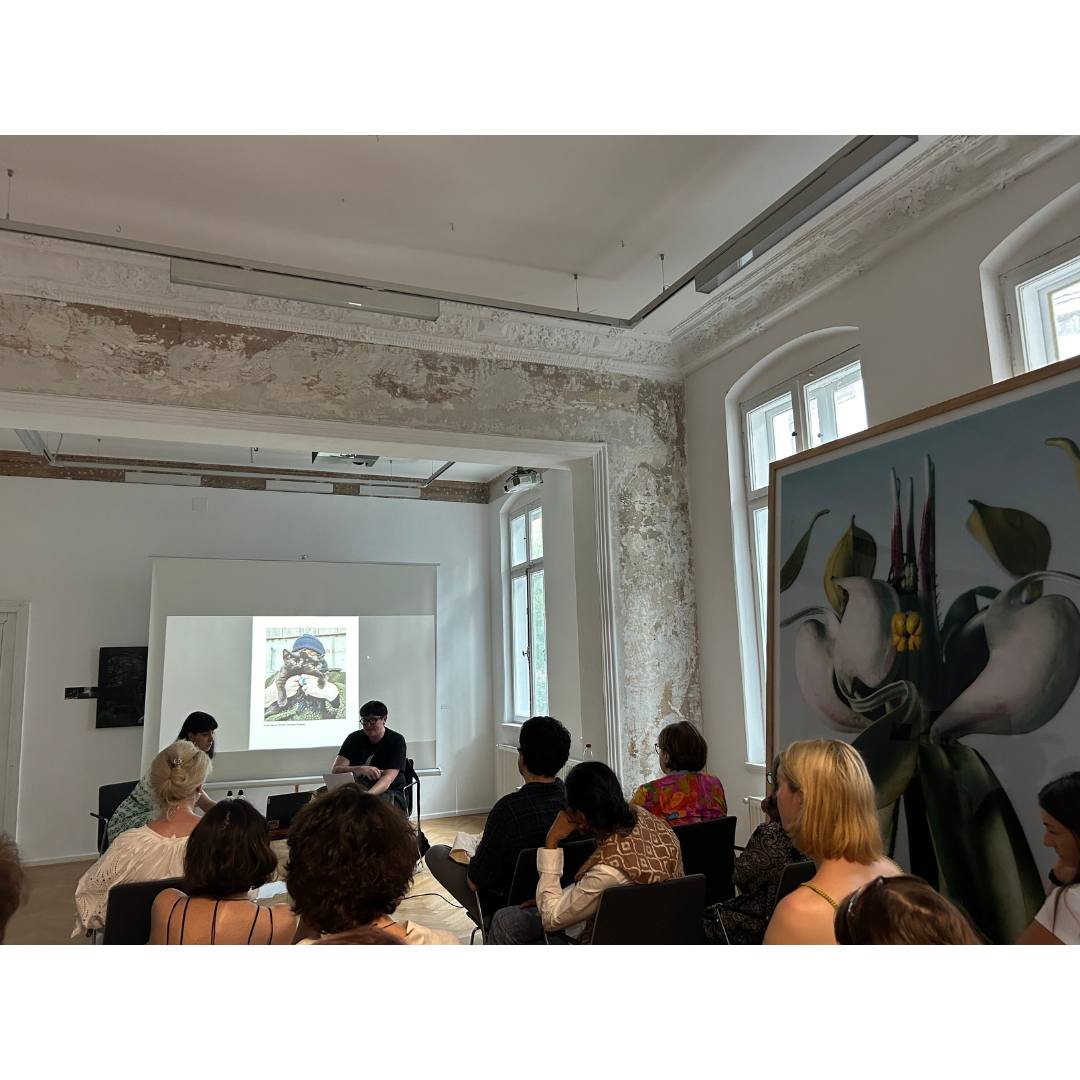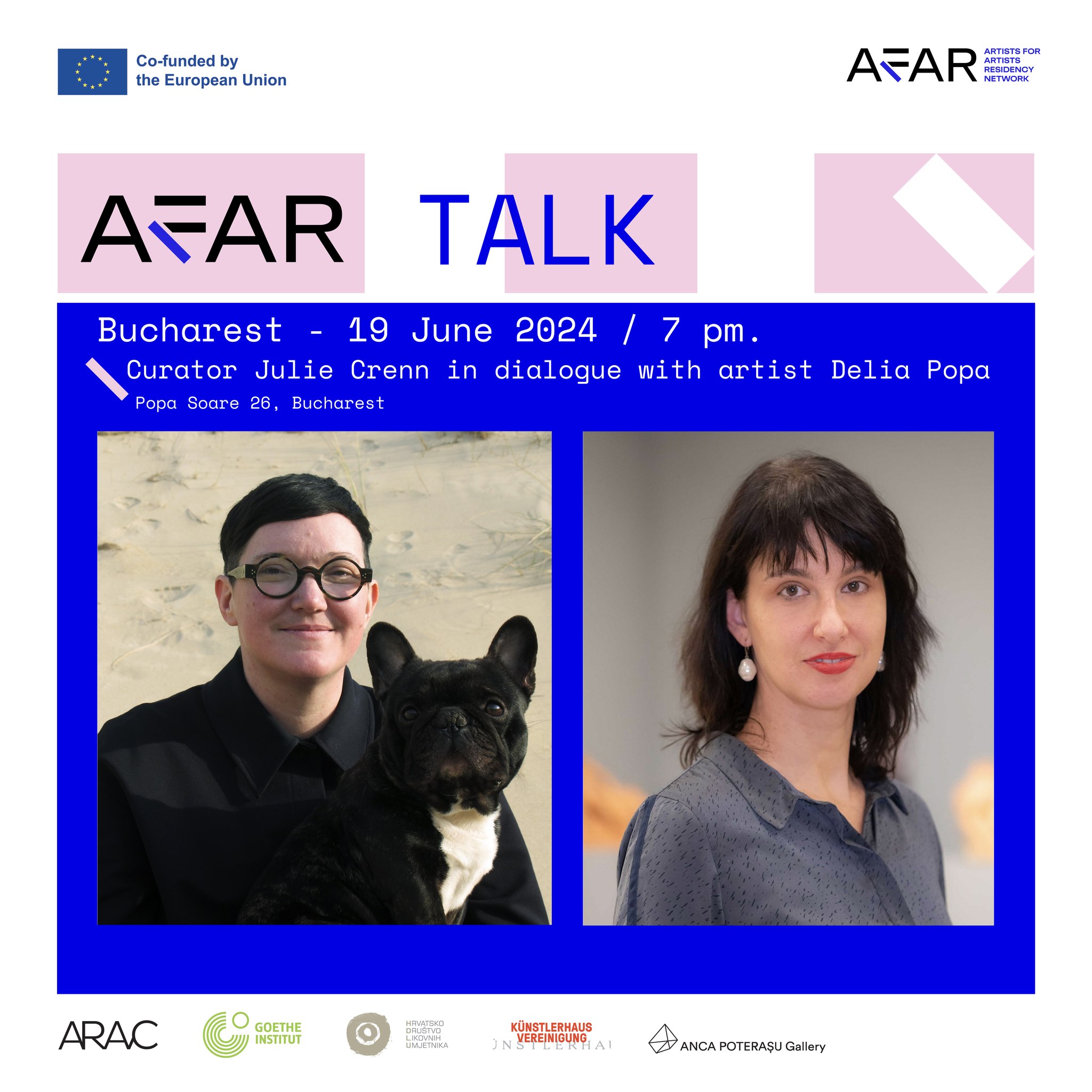
Julie Crenn is an art historian, art critic (AICA – International Association of Art Critics) and independent curator. Since 2018, he is associate curator of Transpalette – Centre d’Art Contemporain de Bourges. In 2005, he obtained a master’s degree in art history and criticism at the University of Rennes 2, with a thesis on the art of Frida Kahlo. Following her research on feminist and decolonial practices, she obtained a PhD in art (history and theory) at the University Michel de Montaigne, Bordeaux III. Her doctoral thesis is a reflection on contemporary textile practices (from 1970 to the present).
Delia Popa is a visual artist and works with mediums such as painting, video, installation, performance and participatory projects. Her current research focuses on the representation of landscape and local topography in relation to agriculture, gentrification and climate change. As an art pedagogue and cultural mediator she contributes to the development of life skills and visual culture among children and young people. Since 2013, she has led ArtCrowd-Artists in Education, an art education association.
Curator Julie Crenn in dialogue with artist Delia Popa
Speakers: Julie Crenn, Delia Popa
June 19th, 19:00 – Anca Poterașu Gallery, Popa Soare 26
This talk is organized by ARAC in the framework of AFAR Network project.
Artists for Artists Residency Network (AFAR) is an EU co-funded project.The residency program aims to improve the mobility of contemporary visual artists and curators in Romania, Germany, Croatia, and Austria. The project is led by the Romanian Association for Contemporary Art (ARAC) with its three consortium partners – Goethe Institute Network, Croatian Association of Fine Artists, and Künstlerhaus Vienna.
About the project: The main topics are related to long-term cultural and social connections between local contexts, regarding cross-cutting themes of ecology and inclusion, specifically concerning wartime and economic migration of people. The project provides a range of new opportunities to art practitioners of all ages, across a variety of artistic mediums and backgrounds, with special regard to women in the arts and gender equality, to become involved in a series of artistic residencies, curatorial fellowships, artists& curators talks, and exhibitions where they can contribute and work together with their peers in creating self-sustainable models of mutual support and cooperation. This will be achieved through methods that include networking events, co-shared working spaces, case-study research of proposed models of residencies, knowledge-sharing between the partners in organizing residencies and public artist/curator talks, the development of an advocacy strategy for increased mobility of artists and curators in the consortium countries.
Views and opinions expressed are however those of the author(s) only and do not necessarily reflect those of the European Union or European Education and Culture Executive Agency (EACEA). Neither the European Union nor the granting authority can be held responsible for them.
The discussion will focus on exploring relationships between people and animals as well as rural environment curatorial and artistic practice.
